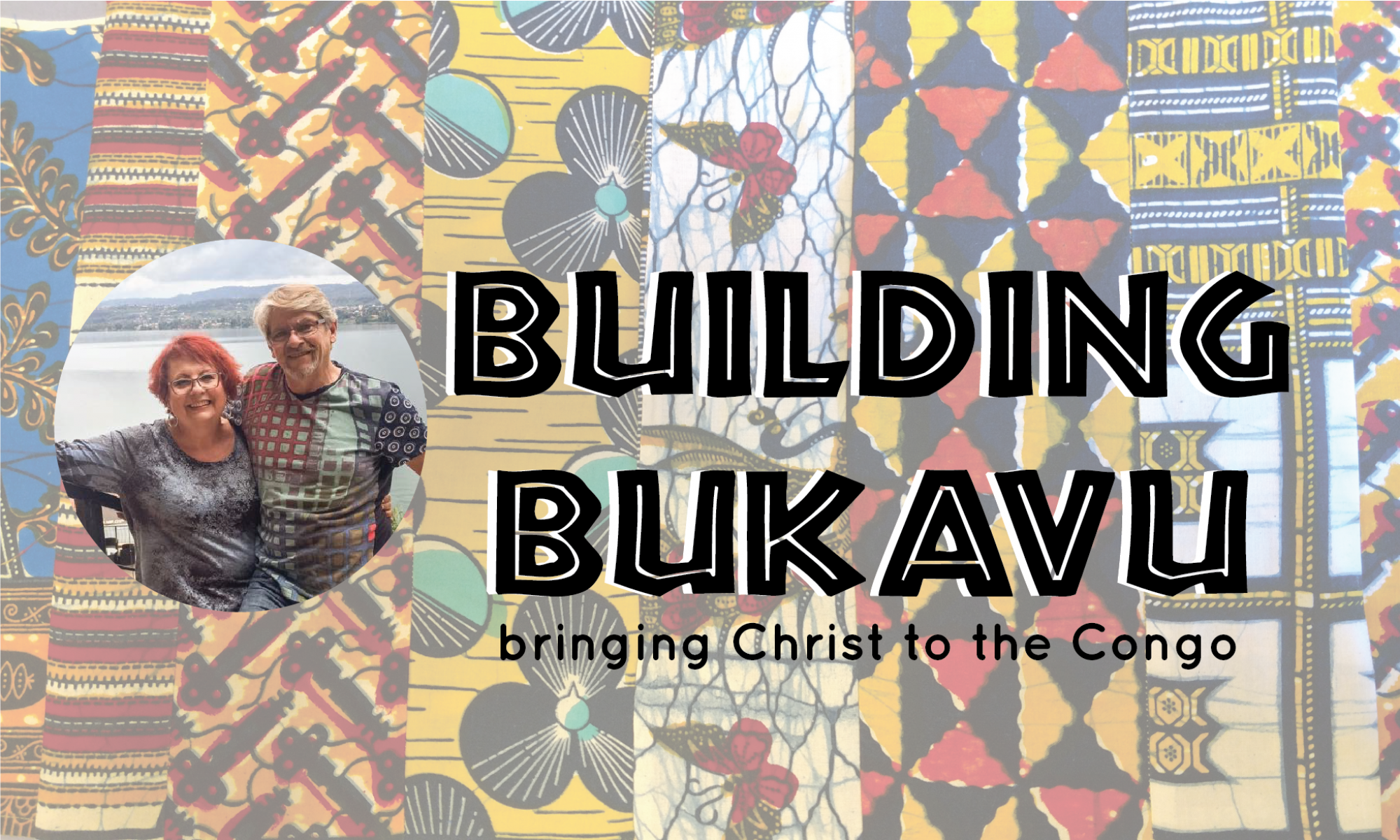
Last month, Brenda, the field coordinator for Heart for Central Africa, gave Ray the keys to her Nissan and said it was his. It had been Brenda’s husband’s and hasn’t been driven since his death four years ago. Ray was a very happy camper!
He and Mulonda, our #2 fundi (expert), as we call him, worked on it for days, trying to get it running again. Discovering it needed a foot of fuel line, Ray and Jean Pierre, another team member who helps with all things concerning the mission, went to the more “industrial” part of town to visit the many tiny little stores there and hopefully find some fuel line.
They went through more than dozen “stores,” which are really 4-by-5-foot mini junkyards, selling anything you can imagine, but found nothing. They went on to the larger stores that sell more new parts. No one had anything even close to what they needed. A passerby overheard them, and unbeknownst to them, went looking himself, eventually finding a used piece of hose the right size diameter. Where from? No one knew. He wanted four dollars for it, but Ray was looking for a new hose. Surely, in a city of many vehicles, there must be a new one somewhere!
They went on to the main street in town, which rose steeply uphill, to the more organized stores. Once again, Ray and JP trudged from one to another. When they got to the last one, the owner said, “Yes, I have it! But I’ll have to send someone to my ‘warehouse’ to get it.” After fifteen minutes of waiting, Jean Pierre asked the store owner, ”Just how far is this place?” The owner said it was close and his man would be right back. Another half hour went by, and the young man returned with a fuel line in his hand!
Drumroll, please. It was the same fuel line Ray had refused to buy for four dollars from the man at the bottom of the hill. The owner said, “I’m sorry, I don’t have a new one.” But he would willingly sell Ray this used one for five dollars!
Realizing this was clearly the only hose in the entire city, Ray intelligently decided to buy it! When he said five dollars was too much to pay for a used piece of hose, the owner simply replied, “This is Congo.”
So in the end, Ray paid four dollars for a hose he could have bought for four dollars an hour earlier! And an errand he thought would take half an hour actually took close to three hours. Later that same day, Mulonda and Ray installed the hose, and within minutes the sound of a running vehicle assailed our ears, along with wide smiles and great rejoicing!
This (really) IS Congo!






 After two days’ travel by air and on land, in vans and on foot, we arrived at the border of Rwanda and the Congo. The river Ruzizi is the border. A bridge spans the waters, the only way to enter Congo in this province. It is old and rickety, with loose or missing boards, some higher than others, and a bit tricky to navigate. Nationals walk briskly across, sometimes barefoot, with heavy loads on their heads or backs. After officially exiting Rwanda, we walked slowly across, keeping our eyes riveted on the boards, not the rushing water below. Well, that was me at least. Behind us walked many men, each one paid to carry one of our ten 50-pound bags, us toting our carry-ons.
After two days’ travel by air and on land, in vans and on foot, we arrived at the border of Rwanda and the Congo. The river Ruzizi is the border. A bridge spans the waters, the only way to enter Congo in this province. It is old and rickety, with loose or missing boards, some higher than others, and a bit tricky to navigate. Nationals walk briskly across, sometimes barefoot, with heavy loads on their heads or backs. After officially exiting Rwanda, we walked slowly across, keeping our eyes riveted on the boards, not the rushing water below. Well, that was me at least. Behind us walked many men, each one paid to carry one of our ten 50-pound bags, us toting our carry-ons. 




